
During a guest appearance on HBO’s Who’s Talking to Chris Wallace, the 80-year-old Copacabana singer said he didn’t think it was important to announce his sexuality during the earlier decades of his career.
Manilow came out in 2017, almost three years after he married his husband and manager Garry Kief in a private ceremony. The couple have been together for 45 years now, though they’ve kept much of their relationship away from the public eye.
When he came out to People magazine in 2017, Manilow — whose real name is Barry Pincus — worried he’d be “disappointing” some of his fans by revealing his sexuality. Instead, Manilow, who was 73 at the time, said the reaction from his fanbase was “beautiful.”

Despite his current feelings of nonchalance about his own coming out, Manilow said announcing his sexuality as his career was booming would have been a bad idea.
“Now being gay is no big deal,” he explained. “Back in the ’70s it would have killed a career.”
Regardless, the usually very private Manilow said he thinks “everybody knew that Garry and I were a couple all those years.”
“Really, Garry and I’ve been together for so long,” he said. “It just never dawned on me that we’re going to come out. But when we got married, it was a big deal, so we did.”
Manilow credited Kief for saving his life. He said he is thankful he had Kief to support him as his music career was taking off, despite keeping their relationship under wraps.
“As my career exploded, it was just crazy. And, you know, going back to an empty hotel room, you can get into a lot of trouble if you’re alone night after night after night,” Manilow explained. “But I met Garry right around when it was exploding. And I didn’t have to go back to those empty hotel rooms. I had somebody to cry with or to celebrate with.”
Manilow said he did not wish an isolated hotel room for any young people.
“It was pretty lonely until I met Garry. And then it was fun,” he smiled.
Kief is not Manilow’s first spouse. In 1964, Manilow married his high school sweetheart, Susan Deixler. They were married for one year.
Manilow told CNN’s Wallace he “really did love” Deixler, but added “the gay thing was pretty, pretty strong. I couldn’t deny it.”
The singer said he knew he was gay before marrying Deixler, but their marriage ended because Manilow couldn’t be the committed husband his then-wife needed. He revealed that his sexuality was not the reason his marriage failed.
“We had a very nice marriage, it was great, but I was away every night making music, as a young musician would be,” Manilow described. “It wasn’t good for me, and it wasn’t good for her.”
“I couldn’t be the proper husband,” he continued. “I was out making music every night, sowing my wild oats. I wasn’t ready to settle down.”
Brooklyn-born Manilow skyrocketed to international fame in 1974 after his release of the ever-popular pop-rock ballad Mandy. He became one of the biggest-selling musicians of all time. Prior to his success as a singer-songwriter, Manilow was behind a number of famous commercial jingles for brands like State Farm and Band-Aid — a gig that he has said helped him create catchy hooks for his own hit songs.
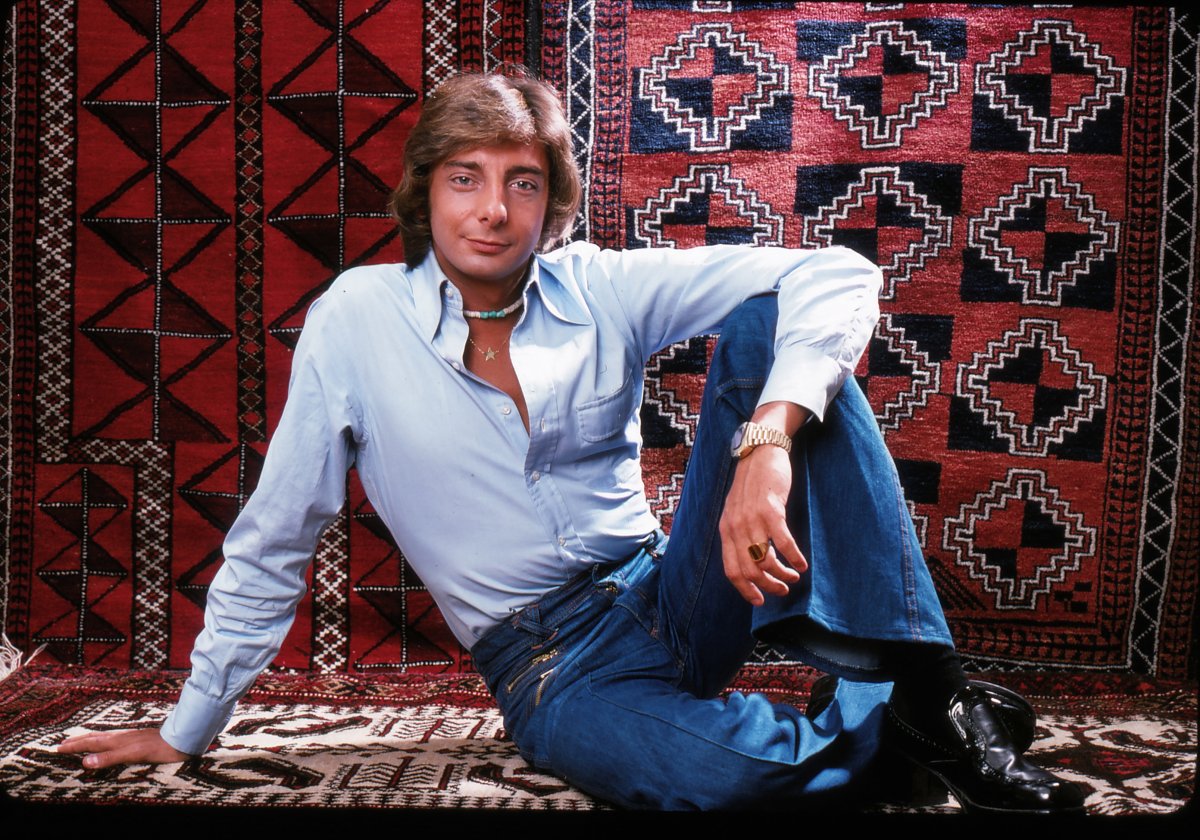
My Ex-husband Broke Into My House at Night While My Daughter and I Were Sleeping – Suddenly, I Heard Her Scream
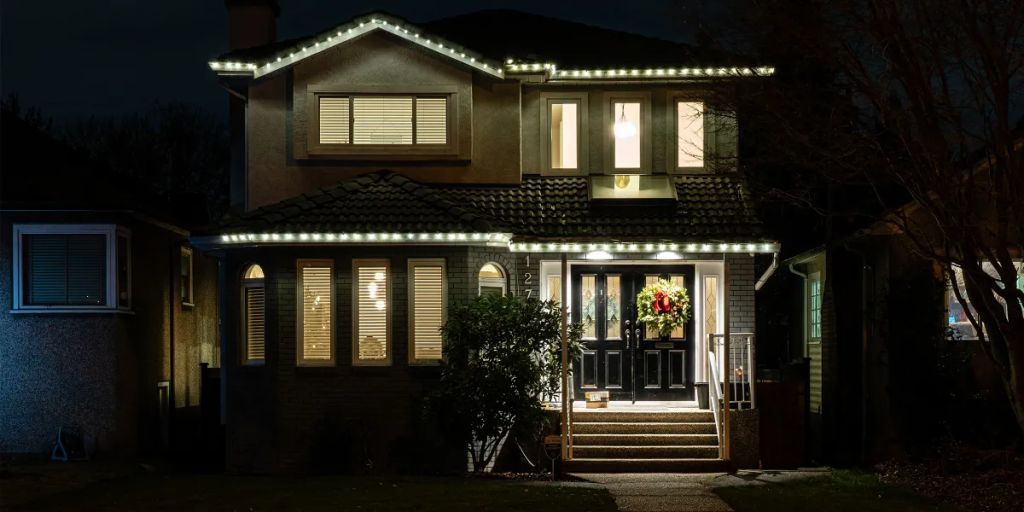
My ex-husband’s selfishness ruined our family, but I thought we had left the worst behind after the divorce. Then, one night, I woke up to my daughter’s scream, and what I discovered had me sending her away and installing security cameras only for my ex to show his worst side.
A few weeks ago, my divorce from Liam was finalized, and as I prepared to go to sleep one night, I remembered all he put me through. Honestly, the entire process had felt like trying to pull a thorn out of my side.

Woman in her late 30s in a bedroom at night with thoughtful look | Source: Midjourney
Liam gave me only years of irritation and pain. I’m not saying marriage should be easy, but life with him wasn’t just hard; it was unbearable.
He had this incredible ability to make everything about himself. We were always second place to his gadgets, schemes, and so-called “investments.”
Let me give you an example. About two years ago, when our daughter, Danielle, was 10, she begged me for ballet lessons. I was ready to make it work by cutting some costs here and there to make her happy. Any parent with a child in ballet can tell you that lessons and clothes are expensive.

Children in ballet class | Source: Pexels
But just as I had arranged everything and was about to call the academy, Liam came home grinning like he’d won the lottery. He said he’d used all of our savings to invest in a cryptocurrency his buddy said would soon blow up.
He swore we were going to be rich. That didn’t happen. The entire thing was a scam in the end, and I had to tell my daughter was ballet wasn’t possible for us at the moment.
As you can imagine, my husband just shrugged it off, saying, “These things happen all the time. The next venture will be our golden ticket!”
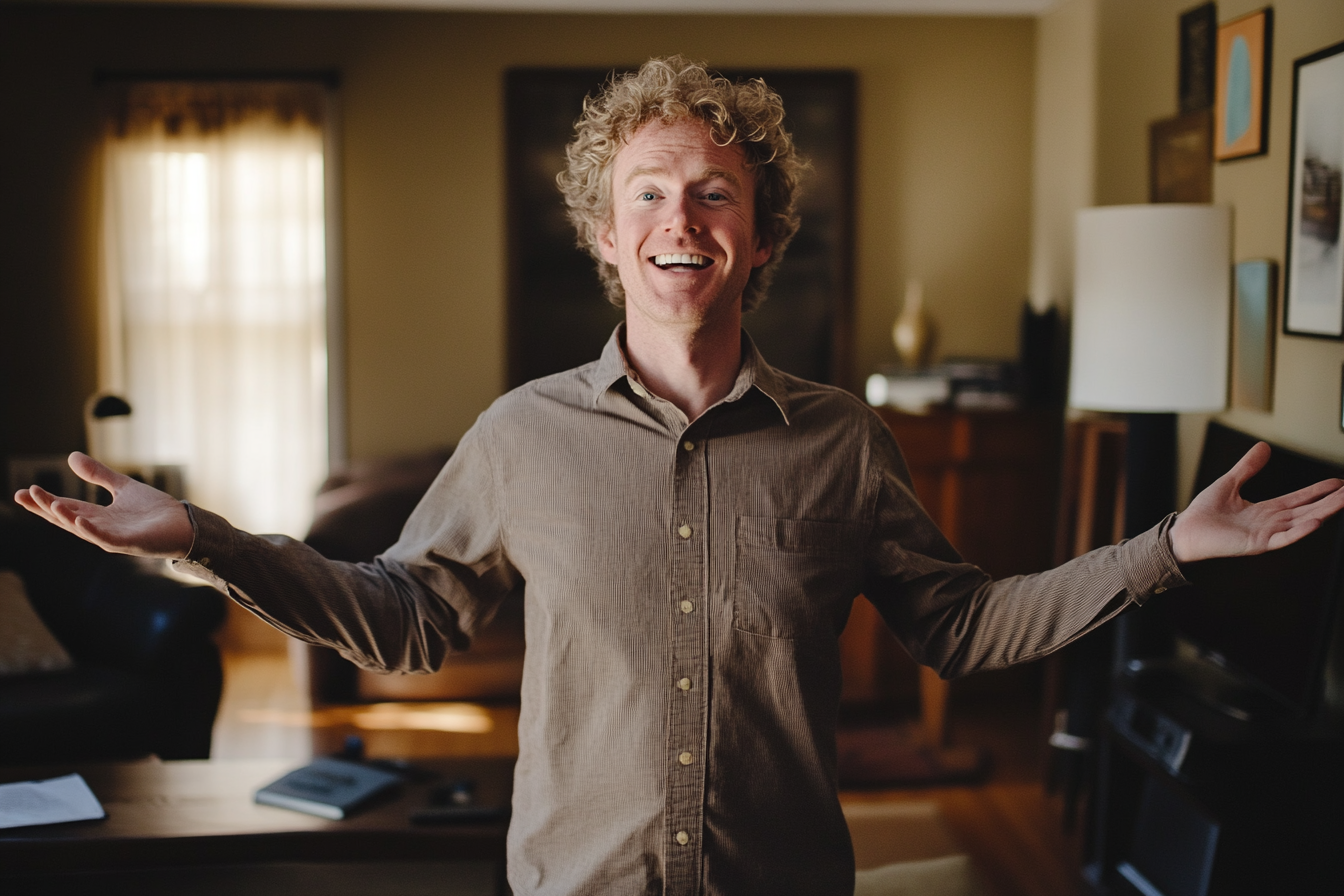
Man in his early 40s shrugging and smiling in the living room | Source: Midjourney
But I was tired of going broke with insane “investments” or having someone buy gadgets to their heart’s desire without thinking about what was best for the family.
Months after the scam fiasco, I found Liam watching videos about trading and finally sat down with him for a serious talk.
“Liam, you can’t keep doing this,” I urged. “You have to think about our family’s future. We might have an emergency. We have to build our finances properly. Not only that, but we also have to think about Danielle’s college.”
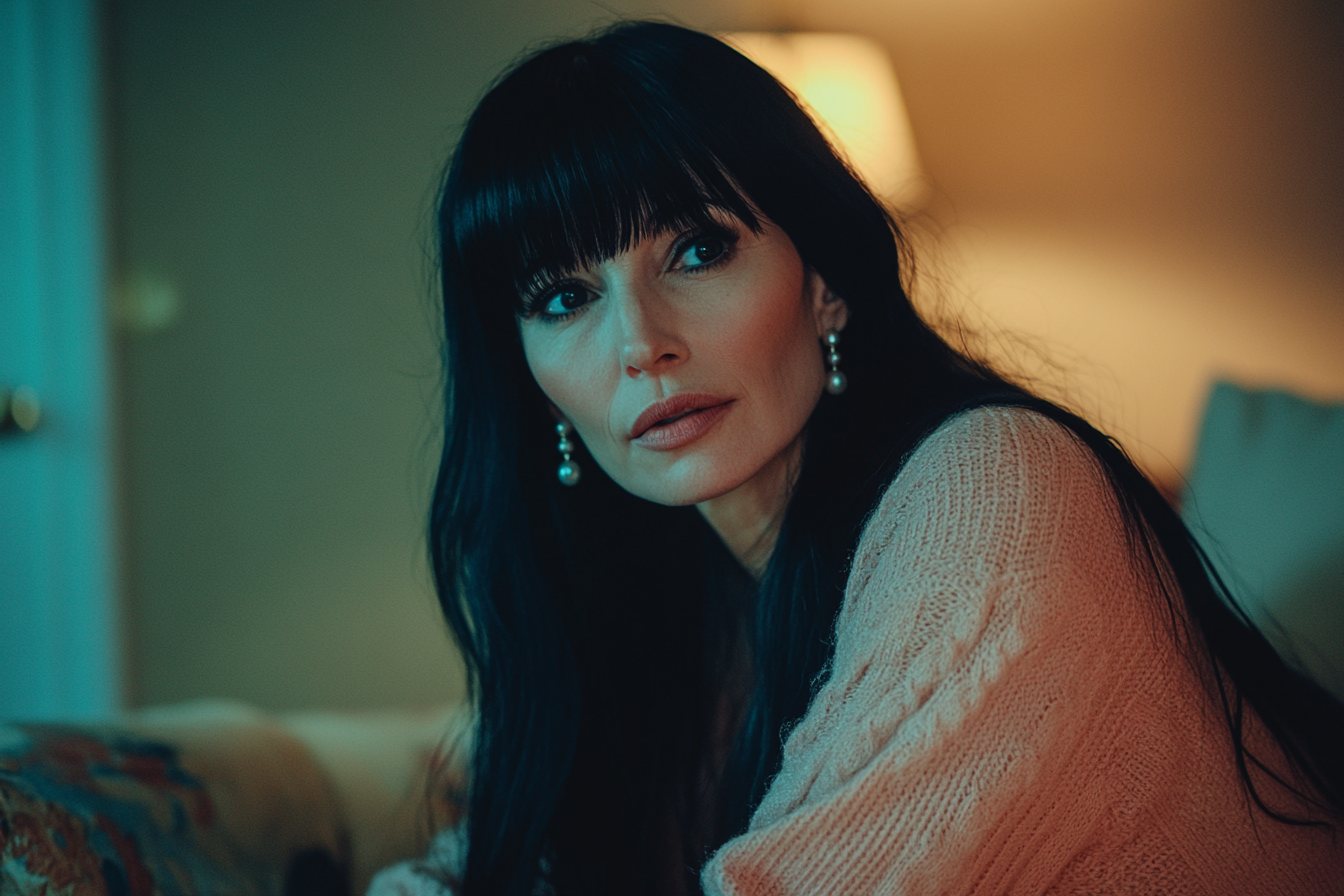
Woman in her late 30s sitting on couch with a serious expression | Source: Midjourney
He wrinkled his nose and waved his hand dismissively. “I AM thinking about the future. We’re going to be rich thanks to one of these things. You just don’t believe in me.”
“It’s true,” I nodded. “I don’t believe in you. This needs to stop or…”
“OR?” he challenged.
I shrugged. “I don’t know.”
“Well, then. Since you don’t trust me, let’s get a divorce,” Liam said, crossing his arms and leaning on the sofa.
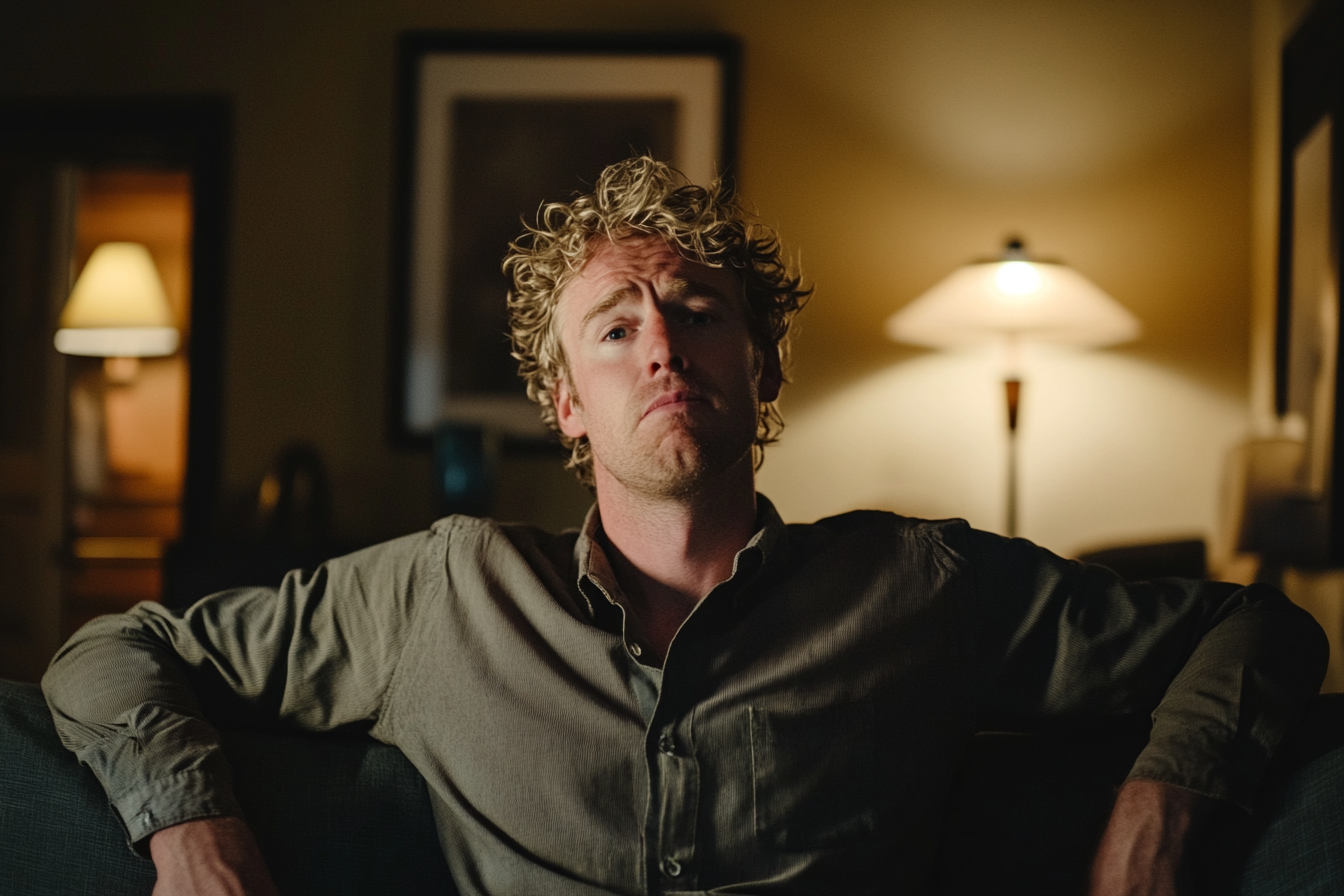
Man in his early 40s sitting back on a couch with pursed lips and an unapologetic expression | Source: Midjourney
“Liam, please,” I sighed. “Be serious.”
“I AM serious,” he spat.
My mouth closed, and I stared into his eyes, searching for any sign of remorse or understanding. But there was nothing. He wasn’t going to change. He wasn’t going to fight for our family. So, why should I fight for him?
“Fine,” I replied, my resolve solidified.
Unfortunately, divorce takes longer than you can imagine. Years, actually.
Danielle was now 12, and the separation had been hard on her, particularly because Liam rarely called or visited since he moved out.

A 12 year old girl looking sad while sitting in bed | Source: Midjourney
It was a small comfort that my daughter and I got to stay in the same house as it had belonged to my late grandfather. He’d died suddenly years ago, and my mother said he always wanted me to have it.
I should’ve felt light after my divorce was finalized. But as I drifted off to sleep that night, I considered how my heart still hurt when I thought of Liam. I wished he had been the man he’d promised to be. But most of all, I wished he wanted to be a good father.
Danielle’s shrill scream ripped me from sleep hours later. My heart pounded as I bolted upright, every nerve screaming in alarm.
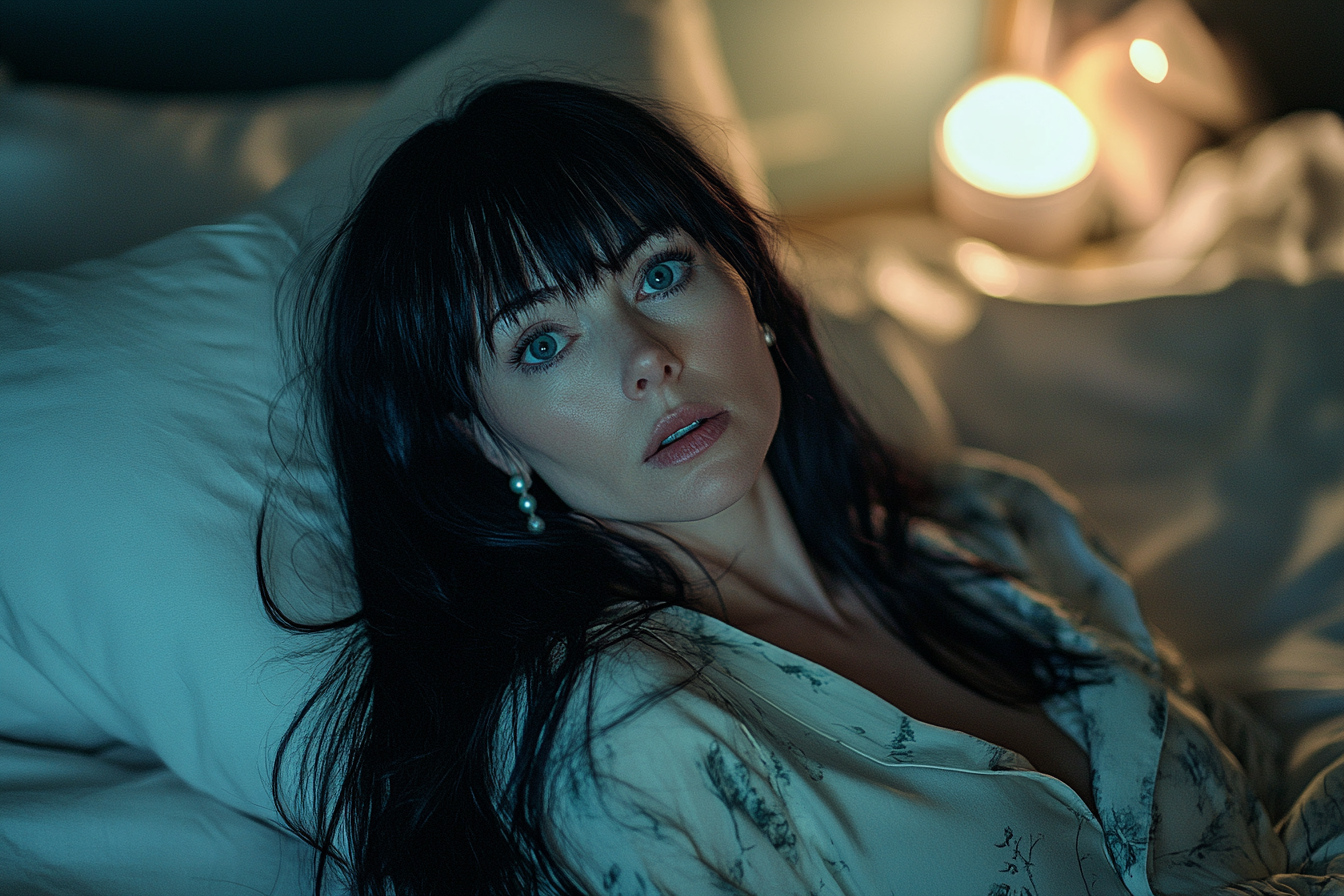
Woman in her late 30s bolting awake from bed looking scared | Source: Midjourney
“Mommy!” she shouted again, her voice high-pitched and terrified. I ran down the hall to her room faster than I thought possible.
I saw a shadowy figure rushing toward me when I got to her door. Before I could react, he shoved past me, slamming me into the frame. The impact sent a sharp pain through my shoulder, but I was more worried about Danielle.
I stumbled further into her room, flipping on the light.
She was sitting up in bed, trembling. “It was a man,” she stammered, her eyes wide. “He had a crowbar. I think… I think it was Daddy.”
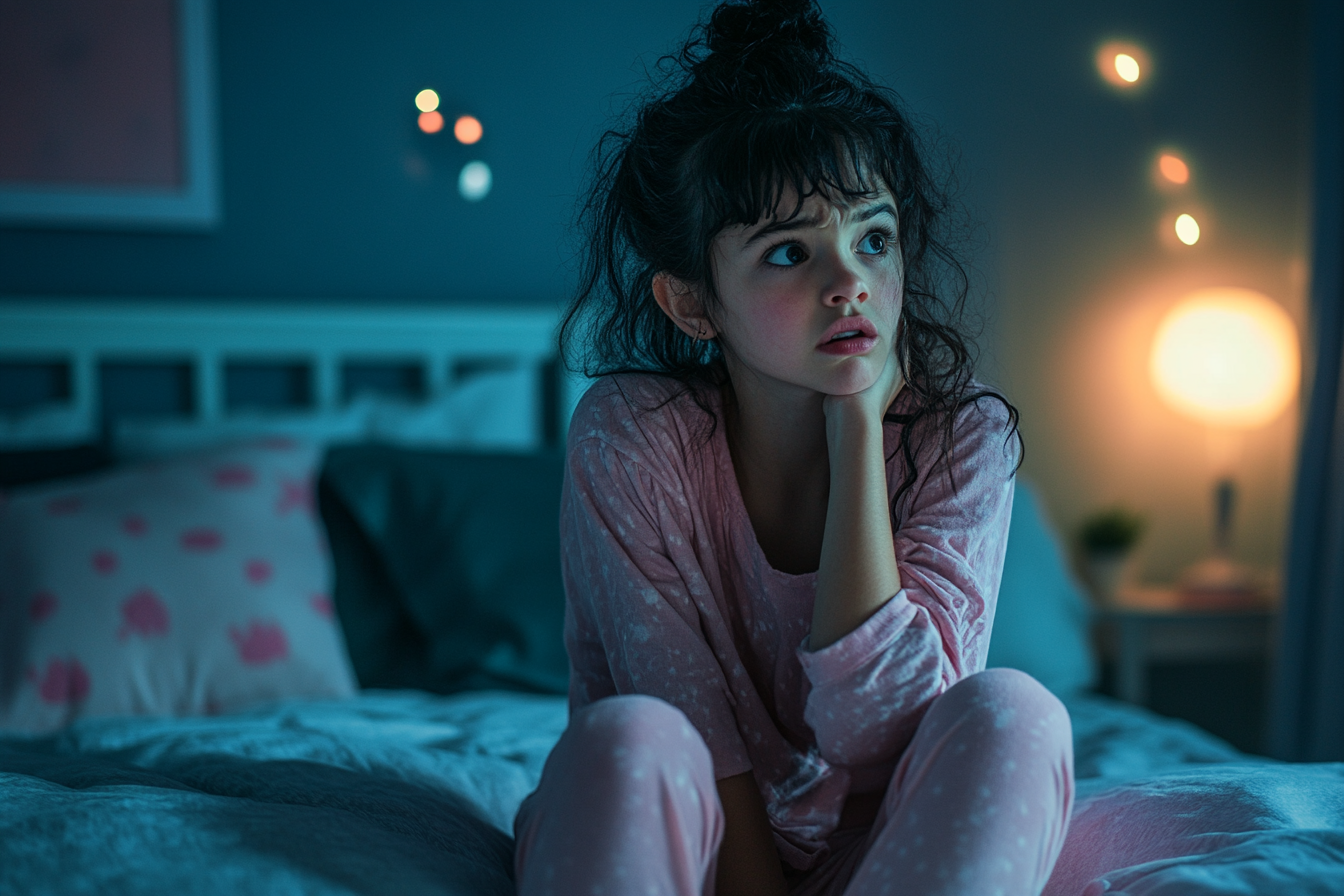
A 12-year-old girl sitting on her bed, late at night, looking confused and scared | Source: Midjourney
I froze. “You’re sure?” I asked, trying to keep my voice calm for her sake.
She nodded quickly. “I saw his face, Mom. It was him. But his eyes… they were scary.”
My stomach dropped. The thought of Liam breaking into our house and frightening our daughter like that made my blood boil. But I couldn’t focus on my anger just yet.
“Are you hurt?”
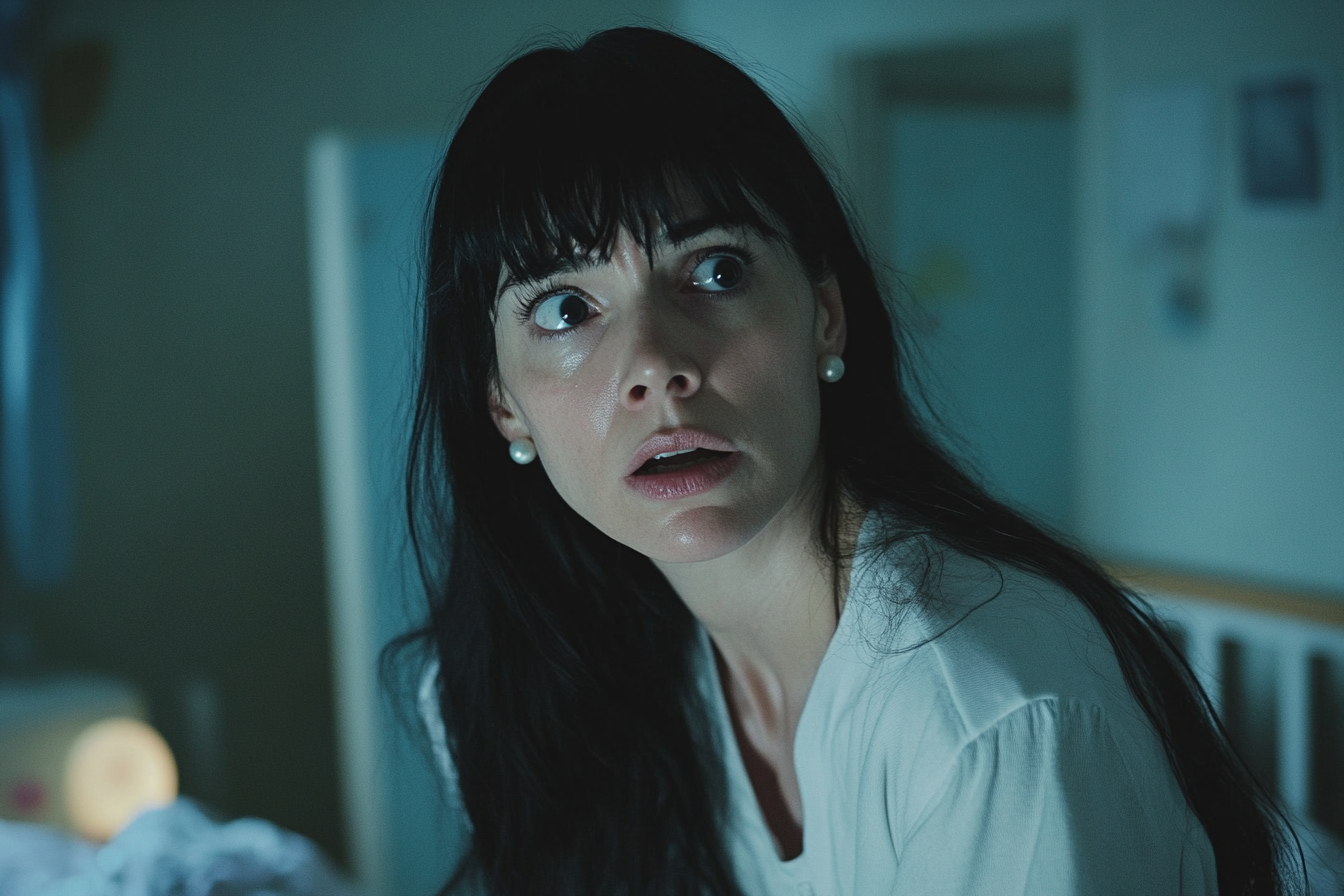
Woman in her late 30s looking scared and sweaty in a child’s bedroom | Source: Midjourney
“No,” she whispered, her voice trembling. Tears welled in her eyes. “But what’s going on? Why did he do that?”
I wrapped her in my arms, holding her tightly, desperately trying to shield her from the terror that clawed at my own throat. “It’s okay, sweetheart. You’re safe now. I’m here.” But was she really safe? Was I?
My mind raced as I tried to figure out what to do next.
When the sun rose, we discovered Danielle’s gold jewelry had disappeared. It was just a pair of earrings and a small necklace her godparents had given her when she was born, but it still hurt to think Liam had taken them.

A jewelry box overflowing with scattered pieces | Source: Pexels
The thought of Danielle enduring another such night filled me with dread. With a heavy heart, I called my mom, Helen, and asked if Danielle could stay with her for a while.
“Don’t worry, Gina,” Mom said over the phone. “She’ll be safe here. You focus on getting things sorted. I’ll pick her up soon.”
By that afternoon, Danielle was packed and getting into her grandmother’s car. I hated the vision of my daughter leaving her home, but it was for the best. I couldn’t risk Liam coming back while she was here.

A car driving away on a road | Source: Pexels
He’d pushed me… ME!
The anger and fear threatened to overwhelm me, but I couldn’t dwell on it. I needed to make this house safe again. I called a security company and had a top-of-the-line alarm system installed. It consisted of motion detectors and cameras that send notifications straight to my phone.
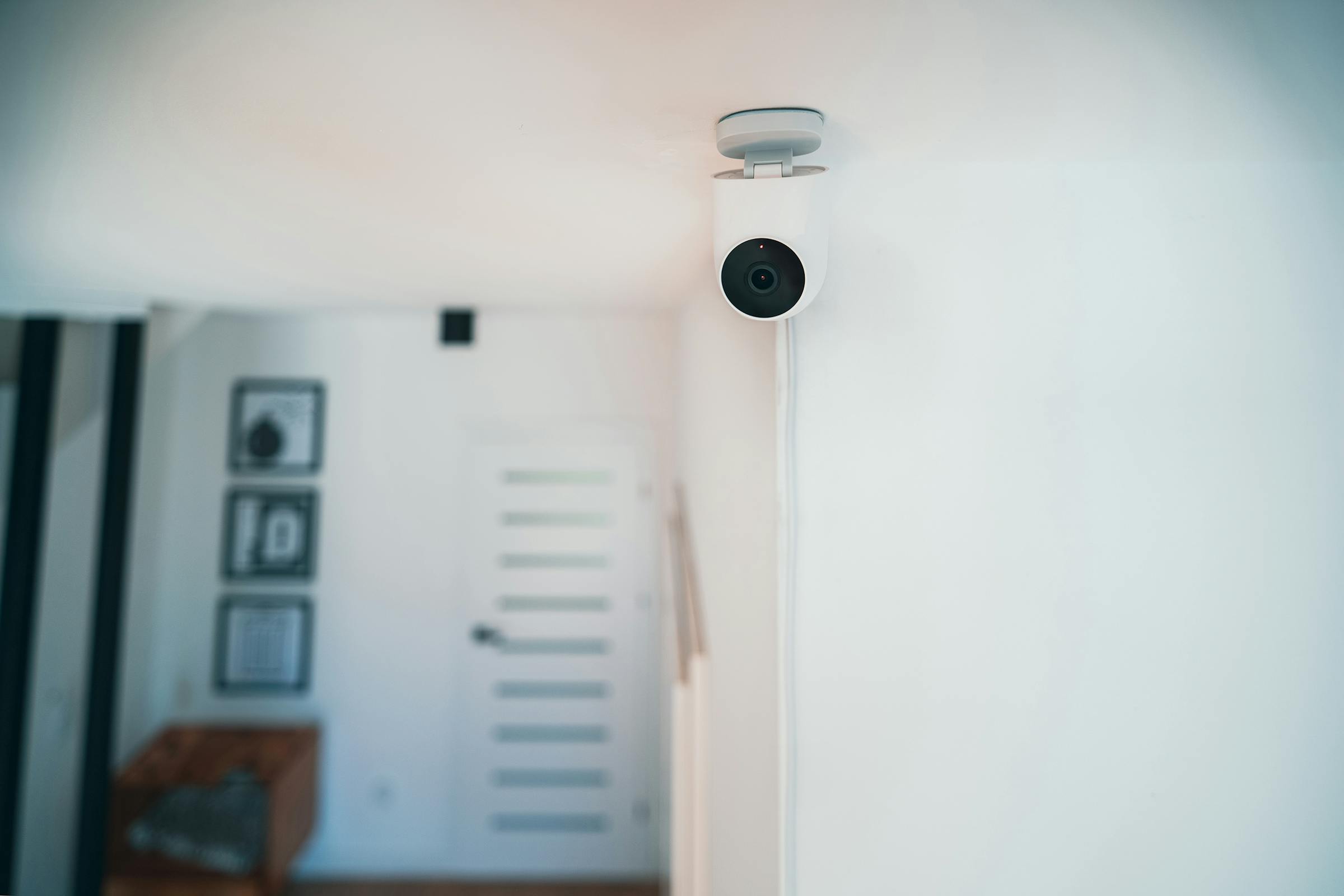
A security camera in a home | Source: Pexels
Thankfully, I could afford all of it now that Liam no longer had access to my finances.
I spent the entire day following the installers around, making sure everything was perfect. When they left, I tested the system three times to make sure it worked.
For the first week, nothing happened. I threw myself into work and chores, anything to keep my mind busy. But the fear never really went away.

Woman in her late 30s cleaning the kitchen while looking worried | Source: Midjourney
Danielle wouldn’t be coming home for at least a month. In hindsight, this had been a good decision because around ten days after she left for her grandma’s house, just after 2 a.m., my phone buzzed with an alert: “Motion detected – Front Door.”
I grabbed it and stared at the screen. The app showed movement inside the house and then in the garage. This meant the intruder came in and went through the kitchen to the laundry room, where we had a door leading to the garage.
I exited the security app and dialed 911, whispering to the dispatcher, “There’s someone in my house. Please send help.”
The dispatcher’s voice was calm and steady, but I barely heard it over the sound of my own heartbeat. “Stay on the line, ma’am. Officers are on their way.”
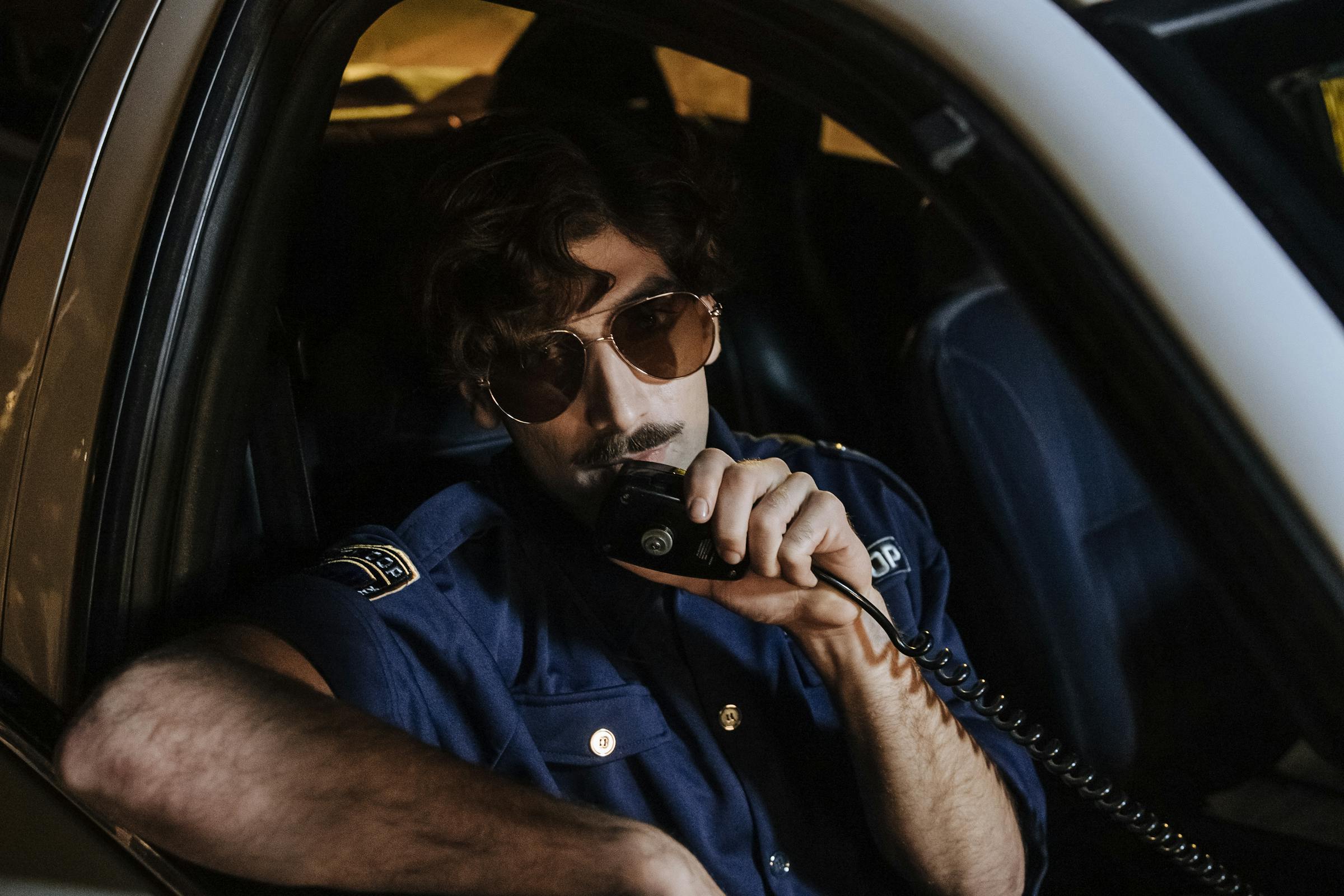
Police officer using the intercom in a patrol car | Source: Pexels
I should’ve stayed hidden, but I wanted to face him, so I crept down the stairs, my phone clutched tightly in one hand. The house was dark, but the light from the kitchen spilled faintly into the hallway.
I moved past the kitchen and walked into the laundry room. After a moment, I heard the sound of something being moved inside the garage.
Pushing the door open just enough to see inside, I spotted a figure in black trying to bring down the tool shelf on the wall. A crowbar glinted in his hand. What was he planning to do with that?
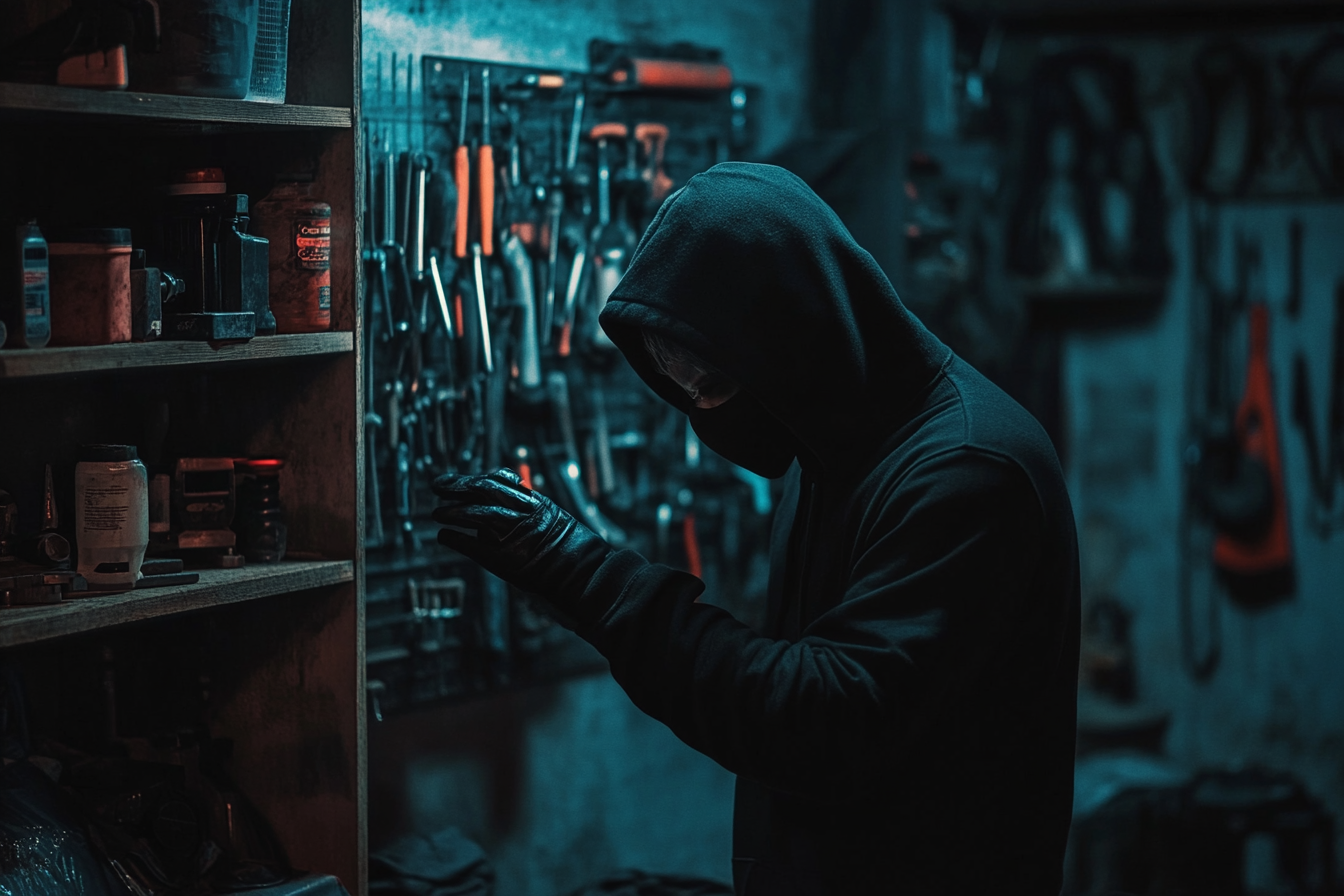
A man in black clothes and a mask inspecting the wall tool shelf of a garage | Source: Midjourney
I went deeper inside and called out, “Liam?”
The figure froze and turned toward me. It was definitely my ex. His face was partially obscured by a black mask, but I knew those eyes and that stance.
Instead of bolting like last time, he started walking toward me, the crowbar raised like a weapon.
On instinct, I rushed to the other wall, where we kept a button that opened the garage door. The loud rumble distracted my ex, and soon, the space was flooded with light from the street.

A home garage door opening at night | Source: Midjourney
At that exact moment, two police cars screeched into the driveway, their sirens piercing the night. Officers jumped out with their weapons drawn.
“Freeze!” one of them shouted.
Liam stopped in his tracks, dropping the crowbar with a loud clang. The cops moved in quickly, securing his hands behind his back. One of them pulled off his mask, and there he was, looking more pathetic than ever.
“What the hell were you thinking, Liam?” I asked, my voice shaking with anger.
He avoided my eyes. “Gina, it’s not what you think…”
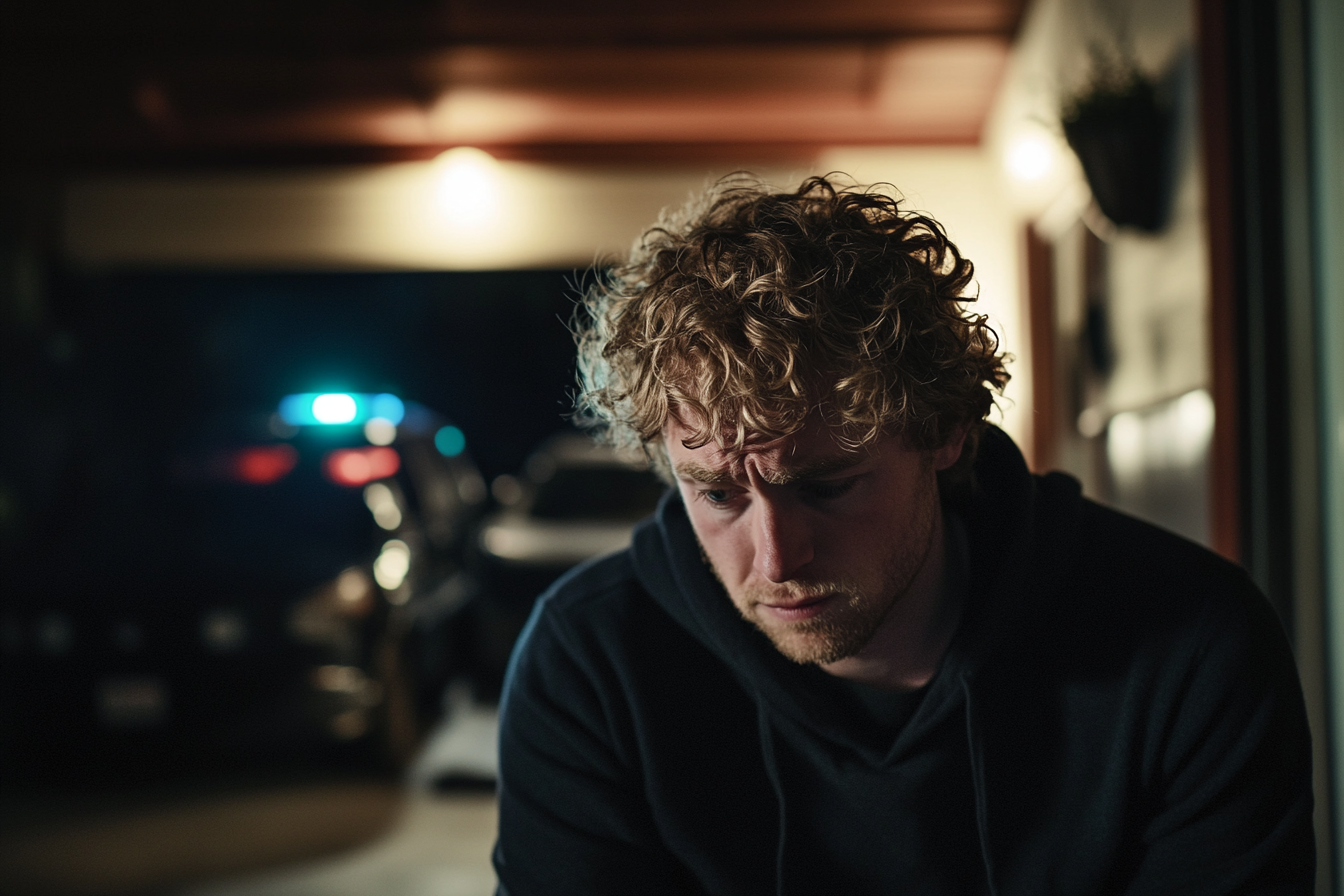
Man in his early 40s looking down sadly while standing in a garage with police cars behind him | Source: Midjourney
“Oh, really?” I snapped. “Because it looks exactly like what I think. You broke into my house AGAIN! You already stole our daughter’s jewelry! What is wrong with you?”
“I’m so-sorry,” he stuttered as the officers hauled him roughly out to the driveway.
“Wait!” I demanded, focusing on my ex. “What were you looking for?”
He couldn’t meet my eyes as he confessed. “When I was packing, I saw a safe in the garage,” he mumbled. “I thought… maybe there was something valuable in there. I didn’t touch it back then…. But now, I just… needed a little something to get by.”
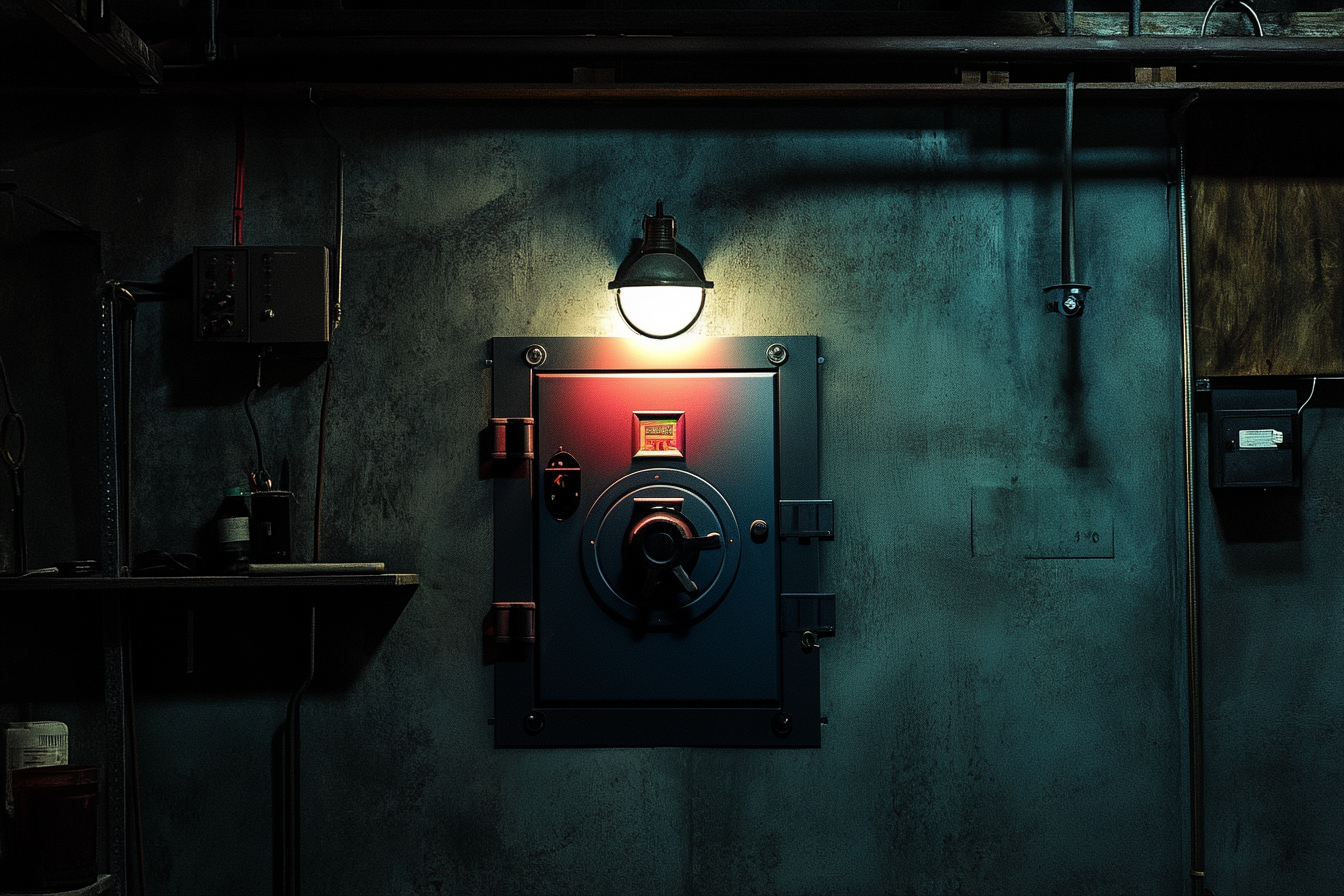
A wall safe in a garage at night | Source: Midjourney
A safe? I turned and there, on the wall where my grandfather’s tool shelf had already been, was a safe. I had no idea it existed at all.
“You’re unbelievable, Liam,” I turned back to stare at my ex as they put him in the squad car. “Absolutely unbelievable. Of course, you’re out of money already. Pathetic.”
I shook my head and watched as the cops took him away, leaving me standing in the garage.
The next morning, I called a locksmith to open the safe. If Liam thought there was something valuable in there, I wanted to see it for myself.
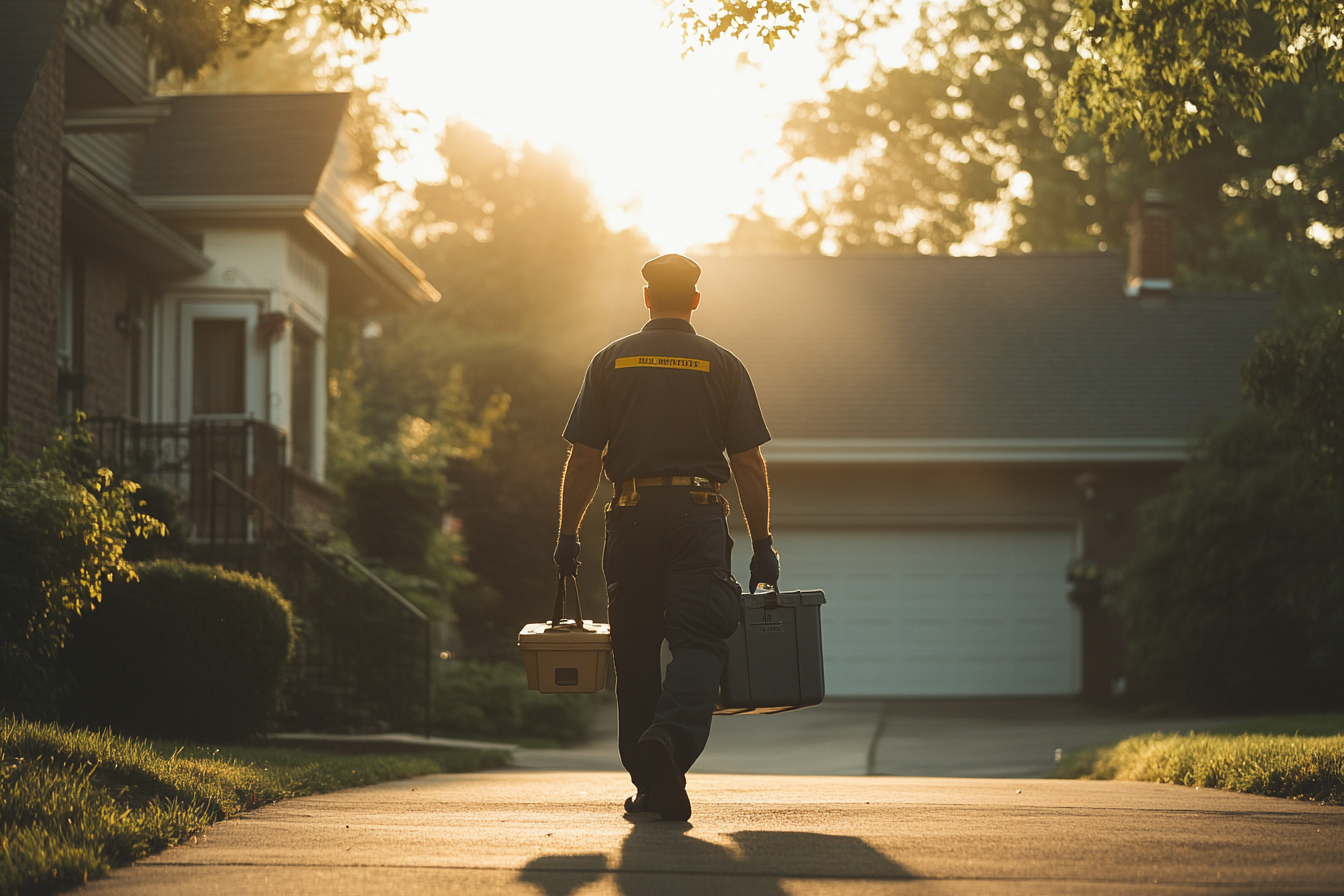
A man in uniform holding toolboxes while walking up a driveway | Source: Midjourney
When the locksmith cracked it open, I held my breath. There were no gold bars, no jewels, nothing flashy inside. Just a stack of neatly organized bank documents.
As I flipped through them, my jaw dropped. My grandfather had kept his entire fortune in several safety deposit boxes. And the access to all of them was registered to me.
My greedy ex had just handed me and my daughter the key to a fortune I never knew existed.
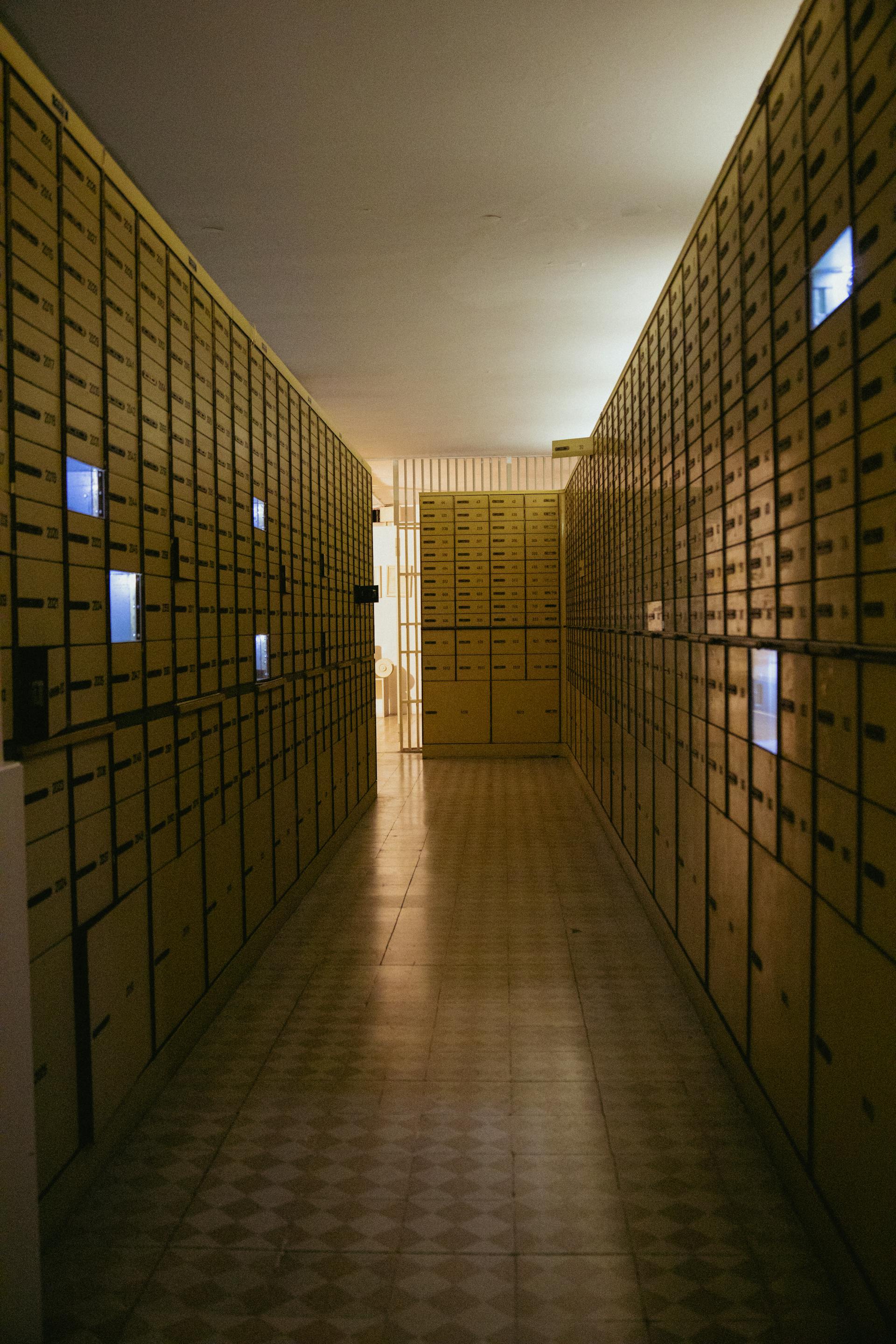
A hall of safety deposit boxes in a bank | Source: Pexels
Weeks later, I found myself in a courtroom, facing Liam. I had to testify against him to help the prosecution.
My ex-husband looked smaller than I’d ever seen him, sitting there in his orange jumpsuit, and I didn’t feel an ounce of pity.
When the judge handed down his sentence for attempted theft, breaking and entering, and the possession of a weapon, I leaned forward, drawing his attention.
“Thank you, Liam,” I said, my voice steady. “Because of your greed, I found out I’m rich. And you? Well… I hope you like prison food.”
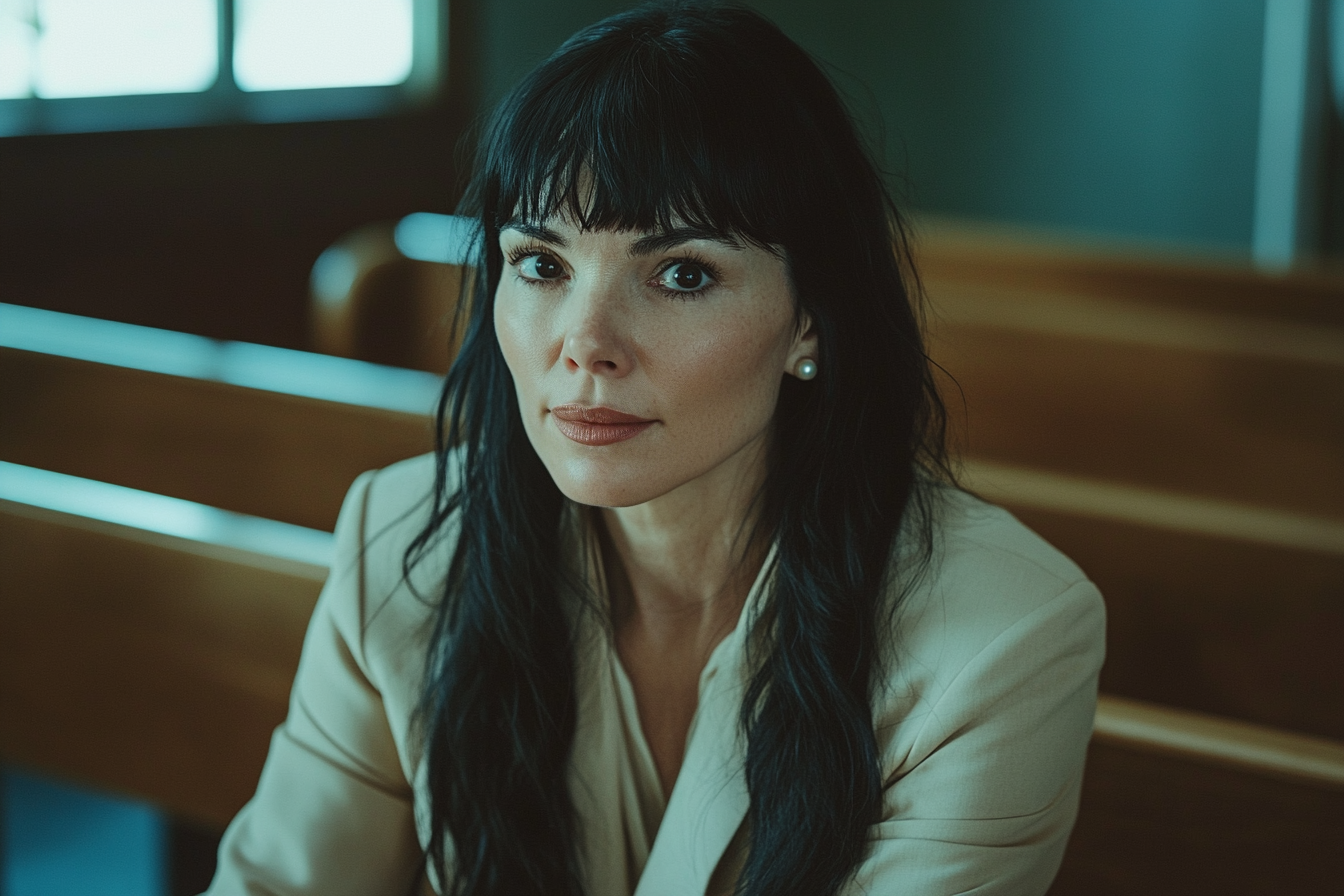
Woman in her late 30s smirking while sitting on a bench in a courtroom | Source: Midjourney
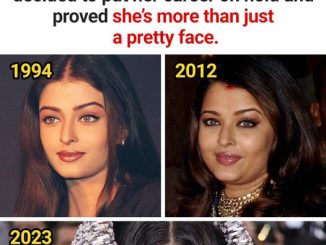

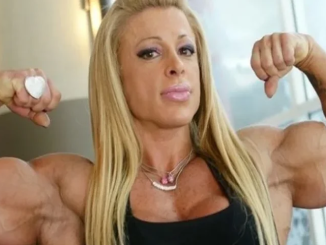
Leave a Reply